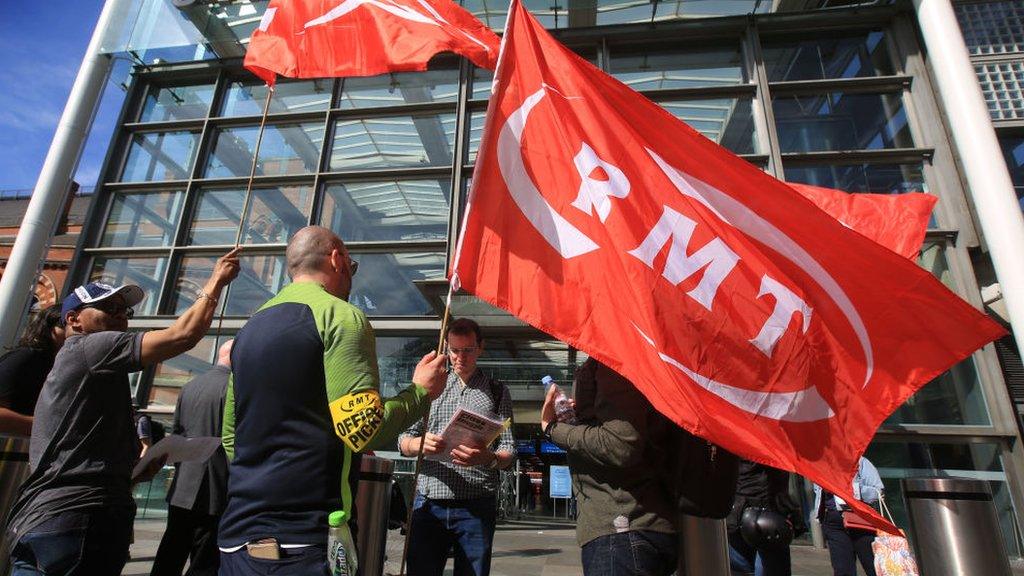Train strike: Second day of strikes continue this week
- Published
- comments
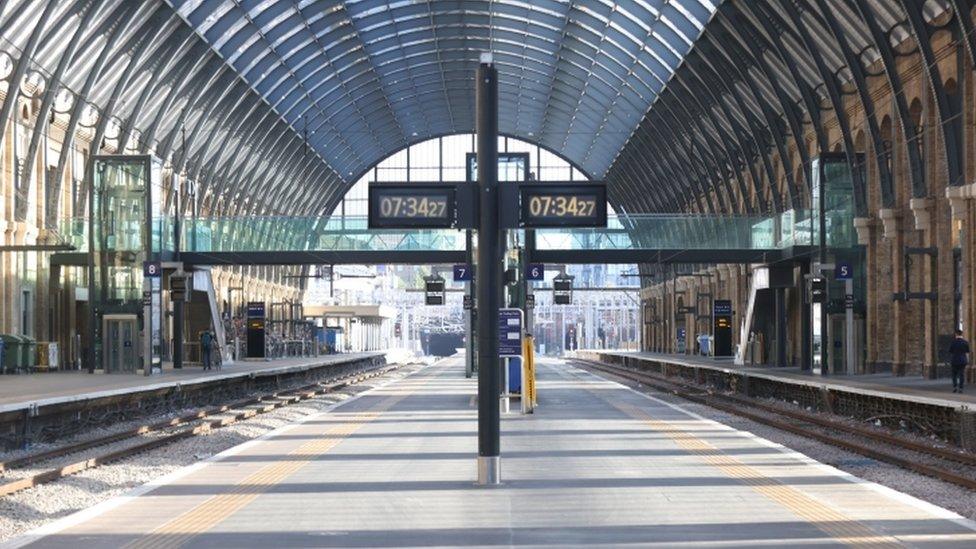
Many train services have come to a stop on Thursday, as the second day of rail strikes takes place.
It's estimated that half the rail network will be closed in England, Wales and Scotland after talks on Wednesday failed to avoid the action.
Around 40,000 railway workers across the UK are striking because they say they want job security, better pay and better working conditions, but have apologised to workers for the disruption.
Railway bosses, supported by the government, say the changes they want to bring in are necessary and they can't afford the pay increases the workers want. They also say strikes are making life harder for people at an already tough time.
The railway staff on many major train lines, are refusing to work Tuesday, Thursday and Saturday this week and talks are underway to try to reach a compromise.
What are the different sides saying?
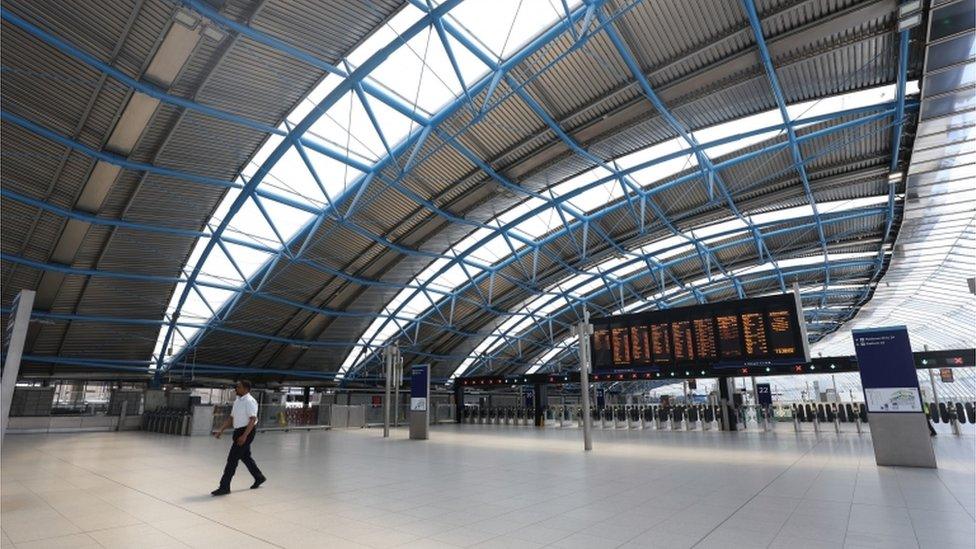
Millions of people were affected by the strike on Tuesday and it is predicted Thursday's walkout will have a similar impact, with only 20% of services running.
The strike is happening because railway workers are unhappy with how they are being treated by their employers. They want better pay and working conditions, and more job security.
There have been talks to try and stop these strikes going ahead, but the RMT union and Network Rail - who run the trains - could not come to an agreement.
Many of the workers are represented by a group called National Union of Rail, Maritime and Transport Workers, or the RMT union for short.
The RMT general secretary, Mick Lynch, said: "We will continue with our industrial campaign until we get a negotiated settlement that delivers job security and a pay rise for our members that deals with the escalating cost of living crisis."
A Network Rail spokesperson said: "We are disappointed that the RMT have again chosen to walk away from negotiations without agreeing a deal. We remain available for talks - day or night - and will do everything we can to avoid further disruption for our passengers."
Prime Minister Boris Johnson has warned that commuters must be ready to "stay the course". Downing Street says £16bn was used to support the railways during the Covid pandemic, and the reforms being suggested to the rail sector are in the interests of the public who use the trains.
What's next?
Although talks will continues, there aren't yet any signs of agreement which means that an expected third day of strikes on Saturday could go ahead.
Rail services across Britain have been affected by the strikes and passengers are advised to check with their train operator before travelling.
Avanti West Coast
C2C
Chiltern Railways
Cross Country Trains
Croydon Tramlink
Elizabeth Line
Greater Anglia
Great Western Railway
Hull Trains
LNER
Northern Trains
South Eastern Railway
South Western Railway
TransPennine Express
West Midlands Trains
- Published21 June 2022
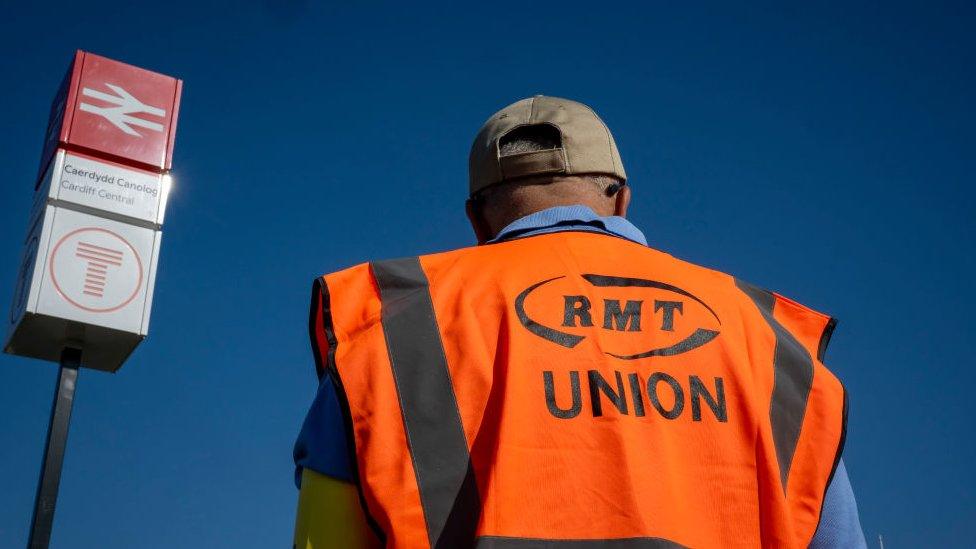
- Published22 June 2022
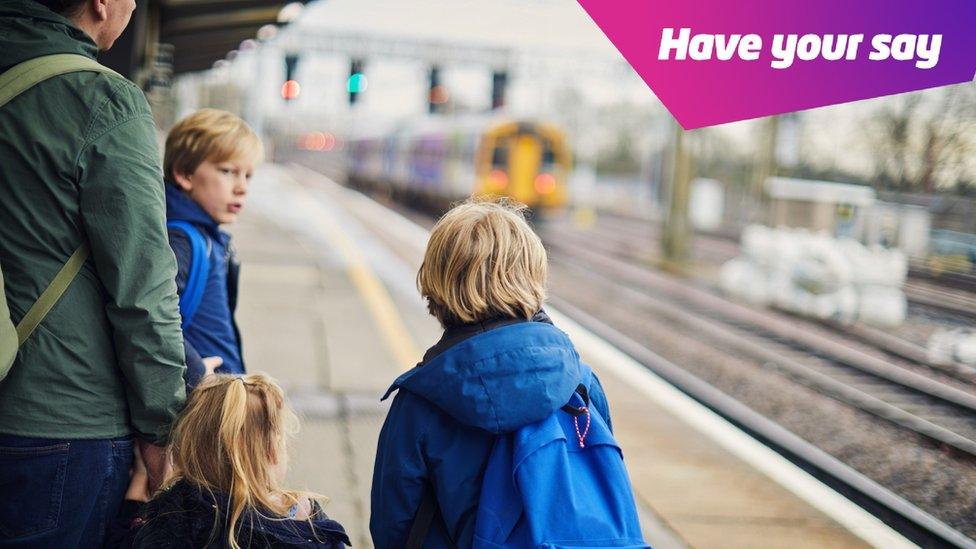
- Published26 August 2022
